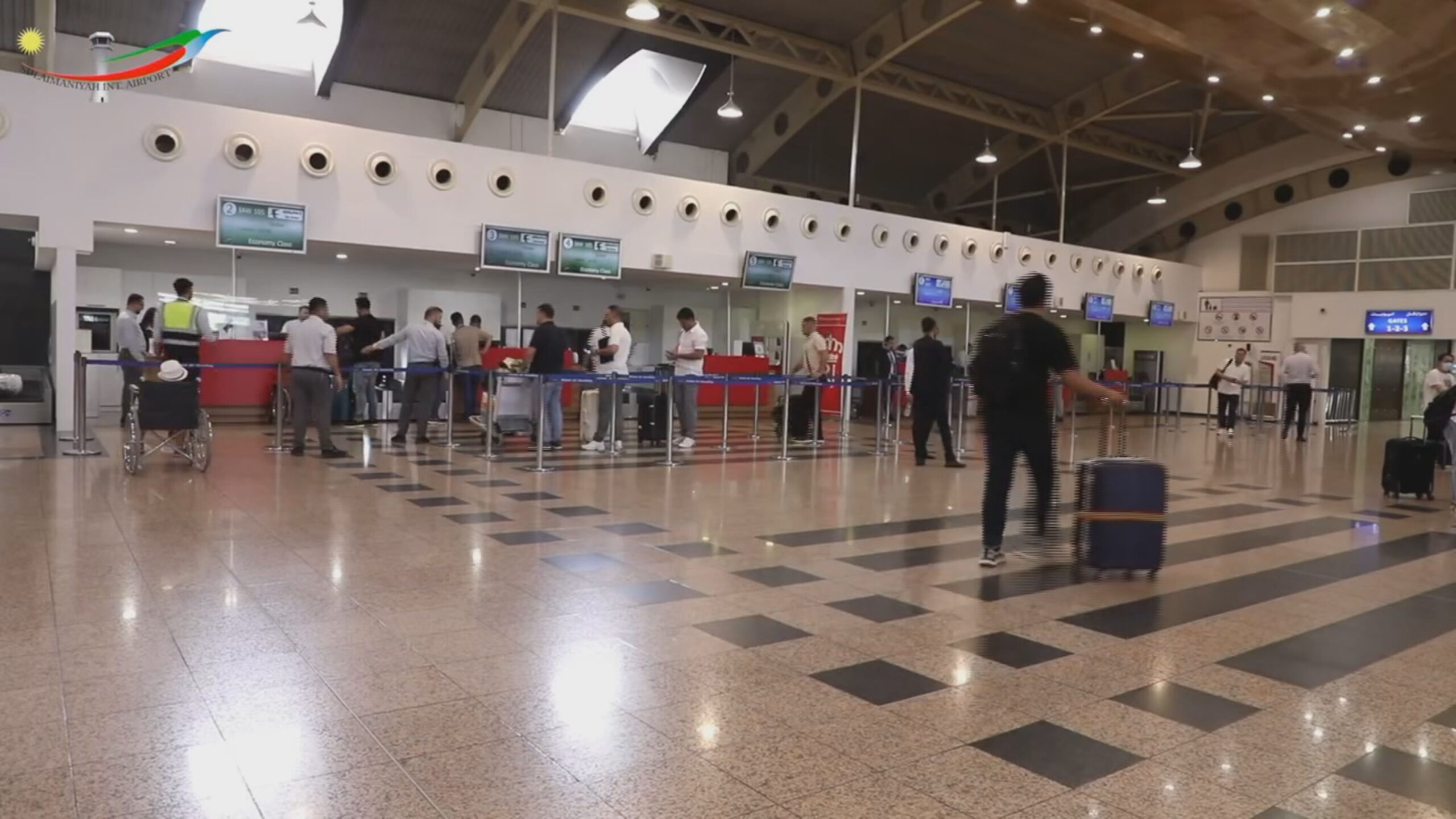Iraqi aviation authorities officially reopened the country’s airspace following improved security conditions, enabling Kurdistan Region airports in Erbil, Sulaymaniyah, and Kirkuk to resume flight operations after a 12-day suspension.
Flight Operations Resume Across Kurdistan Region Airports
Airport officials across the Kurdistan Region confirmed the immediate resumption of flight operations following Iraq’s announcement of airspace reopening. Dana Mohammed, spokesperson for Sulaymaniyah International Airport, told media networks that they received notification from Iraq confirming airspace reopening at 10:30 AM today.
The Sulaymaniyah airport spokesperson indicated that airport authorities are now awaiting airline companies to announce their schedules for resuming flight operations. Similarly, Hardi Samad, spokesperson for Kirkuk International Airport, announced the resumption of flight operations from their facility, with expectations that normal flight schedules will be announced in the coming days.
Sources from Erbil International Airport also confirmed they had been notified about the resumption of flight operations. The Kurdistan Regional Government’s Media and Information Office announced that the first flight from the Kurdistan Region would depart from Erbil International Airport at 3:00 PM today, marking the official restart of air travel.
The Iraqi Civil Aviation Authority made the formal announcement after conducting comprehensive security assessments in coordination with national and international stakeholders. Bangin Rekani, President of Iraq’s Civil Aviation Authority, stated that the decision to reopen airspace came after ensuring security conditions and confirming Iraq’s capability to maintain maximum safety and protection for aircraft operations.
The reopening represents a significant development for regional connectivity, as Iraq serves as a strategic corridor linking eastern and western aviation routes, helping reduce travel time and costs for international flights crossing the region.
Massive Flight Disruptions During Closure Period
The 12-day airspace closure caused unprecedented disruptions to air travel in the Kurdistan Region. Dylan Rashad, spokesperson for the Kurdistan Regional Government’s Ministry of Transportation and Communications, revealed that 1,283 flights were cancelled from Erbil and Sulaymaniyah airports during the closure period.
The closure began following escalating military tensions that started on June 13, 2025, when Israel launched attacks against Iran. Iran subsequently retaliated against Israeli strikes, and on June 21, 2025, the United States entered the conflict by bombing Iranian nuclear facilities. The ongoing military confrontations between these nations, involving continuous drone and missile attacks, necessitated the precautionary airspace closure.
Erbil International Airport bore the brunt of the cancellations, with 1,184 flights cancelled during the 10-day period, while Sulaymaniyah International Airport saw 99 flight cancellations. These figures highlight the significant impact on both domestic and international travel, affecting thousands of passengers and causing substantial economic losses to the aviation sector.
The closure particularly affected business travelers, tourists, and residents with international connections, forcing many to seek alternative routes through neighboring countries or postpone their travel plans entirely. Airlines faced considerable financial losses due to cancelled bookings, rescheduled flights, and operational disruptions.
Airport authorities emphasized that passenger safety remained their top priority throughout the closure period, despite the significant inconvenience caused to travelers. The decision to maintain the closure until security conditions improved demonstrated Iraq’s commitment to ensuring civilian aviation safety amid regional military tensions.
The resumption of operations now allows airlines to begin restoring their schedules and accommodating passengers who had been stranded or forced to alter their travel arrangements during the extended closure period.


